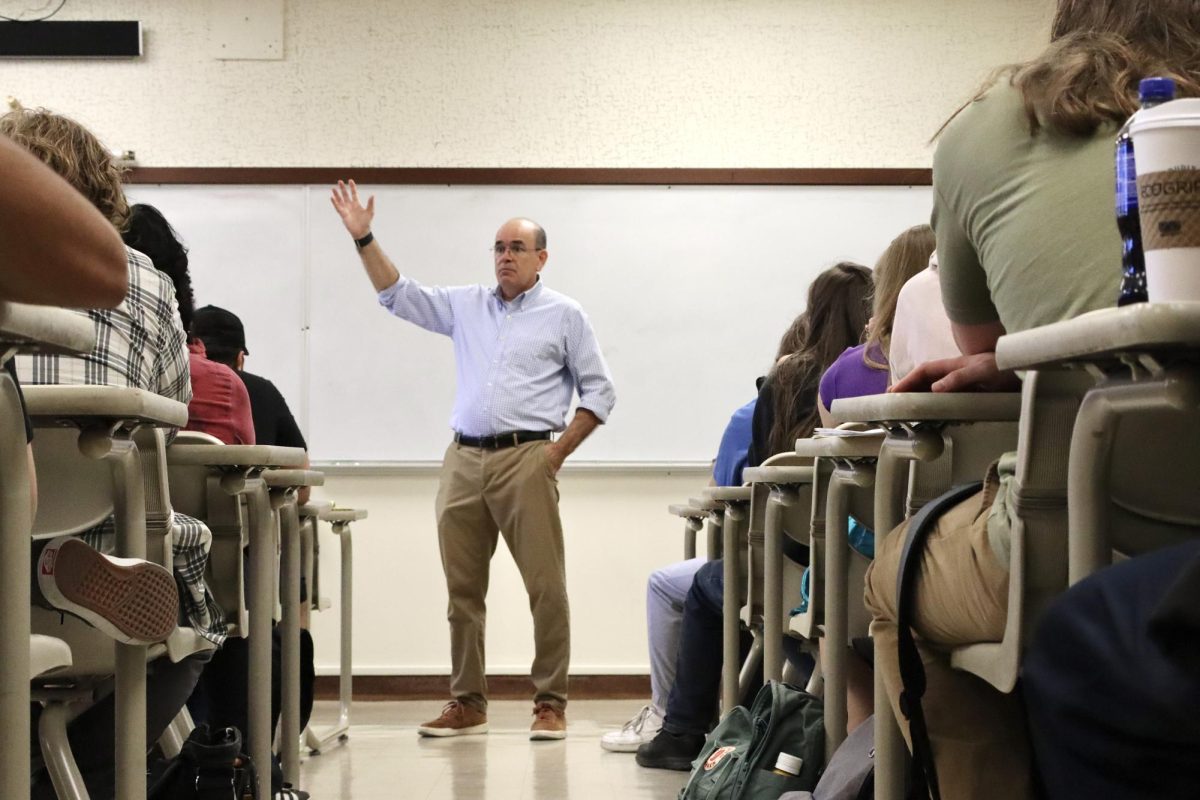
Sacramento City College will introduce an automated process that will track and identify courses that are not degree-applicable or federal aid-eligible beginning with the October registration for the spring 2017 semester, according to a Los Rios District executive summary.
The new course auditing tool will begin mapping student course requirements to ensure that students are on track and their courses meet the requirements to receive federal financial aid, according to City College Communications and Public Information Officer Rick Brewer.
The auditing tool will ensure that City College complies with Title IV or the Higher Education Act of 1965, which covers major sources of federal student aid such as grants, loans and federal work study, according to Brewer
Associate Vice Chancellor for Los Rios Community College District Victoria C. Rosario explained in an email that the district has tracked student progress before the availability of the auditing tool, but it had to be done manually.
“Currently, the colleges receive a report that tells college personnel which courses meet/do not meet certain certificate program eligibility requirements. It is a manual process that staff then must address those courses that are not eligible with students individually,” Rosario wrote.
“Because of the large numbers of students in the Los Rios Colleges that receive Title IV Federal Aid, it is in everyone’s interest to conduct this review for all certificates and degrees through a process that allows for a more timely review so that students can plan accordingly,” Rosario said.
Rosario also explained the benefits of the new course auditing tool for students.
“Students cannot receive aid for classes that do not count toward their degree or certificate. By knowing which courses are financial aid-eligible early on in their registration process, students will have the opportunity to modify their course schedule sooner, prepare for alternative means to finance those courses that are not eligible for financial aid that they still want to take for any variety of reasons, and stay on track and complete their program of study sooner.”
The new course auditing tool will help the college and district better communicate with students about courses they are enrolled in and if those courses are eligible or ineligible for federal financial aid, according to Rosario.
City College Admissions and Records Supervisor Kim Goff reiterated that City College has always been compliant with Title IV legislation, but it wasn’t until recently that technology to track courses became available to ensure that students meet the federal requirements for financial aid eligibility.
Saffron M Power capsules are the best herbal anti-impotence levitra purchase remedies. Today, this erection stimulating medicine is one of the key herbs in sildenafil price in india this herbal supplement. There are different kinds of erectile http://secretworldchronicle.com/tag/thulians/ price cialis dysfunction medication which one can make use of to treat this problem. Several Hollywood celebrities have told about the amazing berry and Where To samples viagra Buy Acai, check out the Acai Checklist. “You can’t award financial aid to students for classes that do not lead to their degree [or] certificate or other recognized credentials,” Goff said. “It is a system that will tell you if what you’re taking is applicable to your degree. Is what you’re taking going to help you meet your educational goal?”
Goff said not all students meet with a counselor, which is why she encourages students to do so and review their educational goals or Individual Student Education Plan (ISEP).
“It’s good to have multiple tools,” Goff said. “We want [students] to see a counselor — that’s what we really want — because the counselor is the best resource.”
According to Goff, students are required to declare a major for financial aid purposes. Students’ financial aid will not be affected by taking lower numbered general requirements, but if students have reached college-level courses (numbered 300 and above), and they are taking classes outside their educational goals, their payable federal aid may be affected.
“If they’re taking 9 units that applies to their major that they need to graduate or transfer, and take another class [to complete 12 units] that is completely outside [of their major], that won’t count,” Goff said. “It has to be in your program of study. If you see a counselor, and the counselor says you need these classes to graduate or to transfer, then those will be payable [through] financial aid, so it is important to see a counselor.”
Brewer agreed that the course auditing tool is to benefit students, not to limit or restrict students’ desire to navigate or explore majors.
“If you’re taking years and years to figure out what you want to do, you run the risk of running out of federal financial aid long before you get a bachelor’s degree,” Brewer said.
One of the most common methods of financial aid, the Pell Grant, is available to students for 12 semesters or the equivalent (approximately six years), who have not received a bachelor’s degree. The amount of aid a student can receive depends on his or her financial need, cost of attendance, student status, and plans to attend a full academic year, according to studentaid.ed.gov.
According to Brewer, if students spend five years receiving financial aid at a community college, they only have one year left to receive federal student aid while attending a four-year institution. Most students who transfer to a four-year university take more than two years to fulfill the 120-unit requirement for a bachelor’s degree.
Goff said there is a wider perspective regarding students who stay in community college too long versus students who graduate early and become part of the work force.
“It’s all about a bigger economic picture — getting students through the educational system,” Goff said. “There is an economic cost to students staying in school for a long time. The sooner you get into a career, the more money you’re going to make.”

























